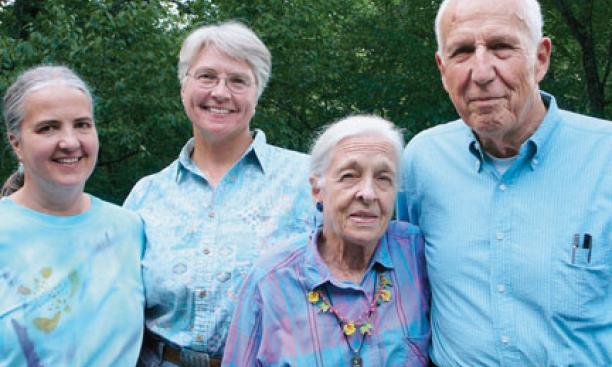



Several months before Whitney Seymour Jr. ’45, then a 20-year-old sophomore at Princeton, reported for service in the Army in 1943, two German college students were executed by a Nazi tribunal for speaking out against Adolf Hitler and Nazi atrocities.
It would take 40 years before Seymour learned about the heroic acts of Sophie Scholl and her brother Hans Scholl, both Christians, on visiting the United States Holocaust Memorial Museum in Washington, D.C. When Seymour viewed the display about the siblings, part of a resistance group known as the White Rose, named after anonymous leaflets they distributed at the University of Munich, he was struck by their self-sacrifice and their willingness to act.
Their story “needed to be told,” says Seymour, a lawyer in New York. To spread their story he wrote a play, Stars in a Dark Sky , with his daughters Gabriel ’80 and Tryntje and his wife, Catryna, under the pseudonym R.E. Vickers. It debuted at the New York International Fringe Festival in August.
The staging for the play is spare — four actors, playing Scholl siblings Sophie, Hans, Werner, and Inge sit on stools. Sophie and Hans read from their letters recounting their evolution from naïveté about the German atrocities to their growing awareness and determination to act and their eventual capture and execution for treason. Werner, who served in the German Army, reads from his journal. Inge narrates the historical context. On a screen behind the actors are clips from newsreels and still photos of the Scholl family and of Hitler. A critic for Time Out New York called Stars in a Dark Sky “emotional and powerful.”